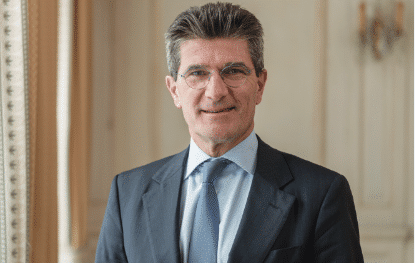Patrick Odier of Swiss wealth management firm Lombard Odier on why Africa offers immeasurable possibilities for investors, particularly those not risk-averse.
Climate change events such as floods, drought and cyclones have had a cataclysmic effect on the lives of Africans and their economies, with many having to rebuild with little to no resources, placing more strain on economies that are already over-burdened.
But are there ways to forecast these events so people are better able to weather the storm? Wealth management firm Lombard Odier thinks it has what it takes to minimize risk on the continent, and they have the years of experience to back it up.
“We are a 223-year-old company. In the financial industry, it means we have probably learned how to weather turbulences and financial market crises – we’ve survived 40 already,” Patrick Odier, chair of the board of directors at Lombard Odier, says.
“We have made South Africa central to our strategy. I think South Africa has a long history with entrepreneurship. This idea of organizing wealth, planning and optimizing the responsibilities between the members of the families – all that belongs to it.”
Loading...
With that said, the bank still holds firm to its roots of running a lean organization where the idea is not to grow in quantity, but rather in quality.
“We cannot be everywhere. We don’t want to be, we’re not a giant. We are private. It makes it a bit different from other organizations where the concerns are more operational… we are purely a service-oriented company,” Odier says.
With a client-based outlook where the bank focuses on investment advisory, execution and fiduciary services, each client is handled based on their unique circumstances, but what does this mean for Africa?
“We are trying to look at the African continent with a very open eye, to look at how we can add value to those potential clients or families who may want to organize their estates and perhaps, diversify their risks. I think agriculture, together with new technologies, will represent new opportunities.”
READ MORE | The Big Bank Theory: South Africa’s Banks Of The Future
Odier says the interests of the firm are based on enhancing and not disrupting banking ecosystems that exist in the African environment.
“While Lombard Odier occupies over 2,500 people, we are still of a modest size as a financial institution. So we really want to focus on our existing client base and not disperse ourselves too much. We are not in the business of buying infrastructure banks and trying to take over. We are not in the business of competing with the local banks. We believe in teaming up, or perhaps diversifying the offering. I think when it comes to investing, we can be very useful to this market
“We believe the best institutions to serve the local market are the local ones. We are here to bring something else, which is basically, what is not offered here,” he says.
However, the continent, like any other, has challenges unique to it and thus, require nuances in resolving. It should not be discounted that, although Africa has made gains in catching up to the rest of the globe, a vast majority of its nations are still developing.
READ MORE | Explainer: South Africa’s Central Bank – Ownership, Mandate and Independence
“The world in general is changing. You see it in everything in your life. You see it in the way you consume, the way you expect your employers to treat you and the way you think of prices. Unfortunately, you’ve seen it the way water becomes scarcer in some periods, you see also how difficult it is to produce electricity correctly, in some respects, and you see it in how climate change is affecting your life.
“All those elements are part of mega-trends we believe as a firm we could try to interpret quicker and better than some. We are transforming the way we invest to invest more sustainably. In South Africa, we want to be a leader in bringing this approach to investing in resources.
“Some say you have to have luxury to think this way, I say not doing it will create much bigger risks than doing it,” Odier says.
Loading...
